Identify the issue
Career Wise Menu
Understand the Context: Overview
Understand the Context refers to recognizing the environment in which a particular concern arises. To start, universities reflect systemic issues in our society that are intransigent and have a disproportionate impact on diverse women. Further, graduate school is a type of subculture within the university that carries a set of expectations and norms generally developed long ago by people who are not like you.
Focusing on the context of opportunities or challenges you experience is critical for the anti-deficit framework that we use in the CareerWISE Academic Resilience Coach. We consider context to represent the local and systemic elements that are outside of you and over which you may have little control.
We support activism for systemic change and applaud the many efforts on university campuses, through national initiatives, and public action to make studying, working, and living environments more friendly and equitable for diverse women. You may be leading or participating in these activities yourself.
Nevertheless, while these larger scale efforts are ongoing, you may be experiencing incidents almost everyday where you could use some support. In the CareerWISE Academic Resilience Coach, we aim to expand your knowledge and equip you with tools to manage current personal and interpersonal situations in the contexts where they arise. In this Understand the Context set of modules, we describe social and academic conditions that spark the challenges you may face, along with resources that are available to you.

Recognize Sexism
Some displays of sexism and gender discrimination are easy to identify; however, there are also forms of sexism and discrimination that are so central to the experience of women and minorities that they often go unnoticed.
Learn more
Recognize Microaggressions
People with one or more minority identities are frequently subject to bias-based but often unconscious verbal or nonverbal behaviors that range from aggravating to downright offensive. In the context of a graduate program, microaggressions contribute to women feeling out of place and isolated.
Learn more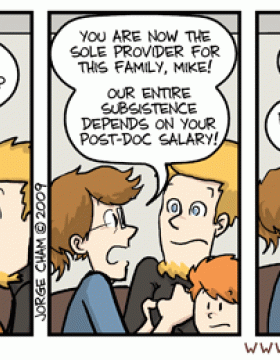
Family-Friendly Policies
If you are a graduate-student parent struggling to fulfill program expectations and family needs, you are not alone. The good news is that there may be family-friendly services and policies that your university has available for graduate students.
Learn more
University Resources
Most universities offer a variety of graduate student resources. Know what resources and services are available and how you can access them.
Learn more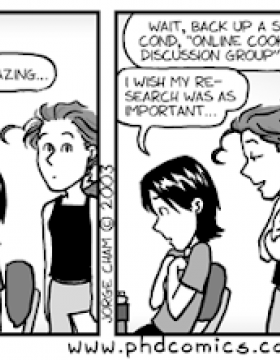
Online Resources and Supports
A wide range of specialized organizations in STEM and online resources offer unique opportunities to connect with mentors and professional networks beyond your home department.
Learn more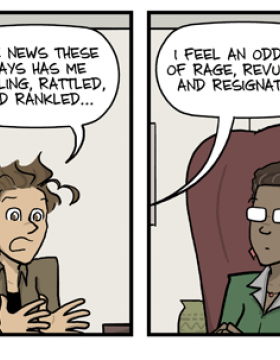
Challenges Faced by Women of Color
Women of Color are far outnumbered in science and engineering doctoral programs. The “double bind” refers to the simultaneous experiences of sexism and racism that Women of Color report inside STEM programs, along with systemic and structural impediments outside.
Learn more
Challenges Faced by First-Generation Students
A first-generation student is a student who is the first in the family to go to college. Recognizing the common barriers you or fellow students experience can be helpful, as well as being familiar with persistence strategies and resources that are linked to first-generation student success.
Learn more
Challenges Faced by Sexual and Gender Minorities
Being both a woman and LGBTQ in a STEM PhD program may bring challenges different from and beyond those experienced by other individuals in the program. Knowing about protective factors, ways to respond to put-downs and slights, and resources for advocacy help to counter discouragement.
Learn more
Challenges Faced by International Students
Graduate programs in science and engineering attract a large proportion of international students—approximately 30%. Identifying cultural factors that influence the graduate experience is important for assessing a problematic situation and managing it.
Learn more
Academic Generations
Generational differences can cause some conflicts and misunderstandings. In fact, many conflicts and misunderstandings experienced by graduate students may be explained by generational differences in values and expectations.
Learn more
Expectations for Graduate Students
Being a graduate student is entirely different from being an undergraduate. Understanding what faculty members expect of you can help you assess problems and meet expectations.
Learn more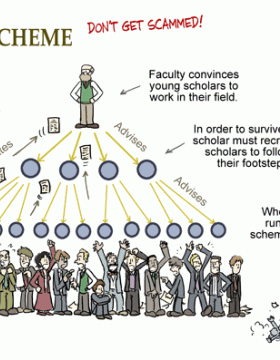
Stakeholders
Do you know who has an interest or investment in your graduate experience and how these people affect your opportunities and progress through the program? Paying attention to the needs of stakeholders, such as your advisor, family, friends, and peers, helps you assess the breadth of a problem and is essential to…
Learn more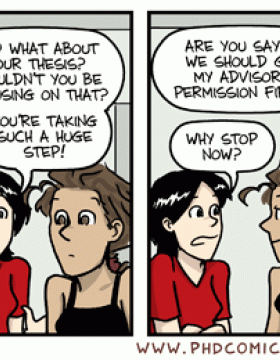
Sexual Harassment
Sexual harassment is a rare but serious problem for some women in graduate school. Sexual harassment constitutes behavior such as unwelcome sexual advances, requests for sexual favors, and other verbal or physical conduct of a sexual nature. Recognizing and responding to sexual harassment are important to your well…
Learn moreIdentify The Issue Side Menu
- Overview
- Recognize Sexism
- Recognize Microaggressions
- Family-Friendly Policies
- University Resources
- Online Resources and Supports
- Challenges Faced by Women of Color
- Challenges Faced by First-Generation Students
- Challenges Faced by Sexual and Gender Minorities
- Challenges Faced by International Students
- Academic Generations
- Expectations for Graduate Students
- Stakeholders
- Sexual Harassment
“It's important to determine which surroundings work best for you, and then build that environment to suit your needs.”
An Arizona State University project, supported by the National Science Foundation under grants 0634519, 0910384 and 1761278
Any opinions, findings, and conclusions or recommendations expressed in this material are those of the authors and do not necessarily reflect the views of the National Science Foundation. © 2021 CareerWISE. All rights reserved. Privacy | Legal


